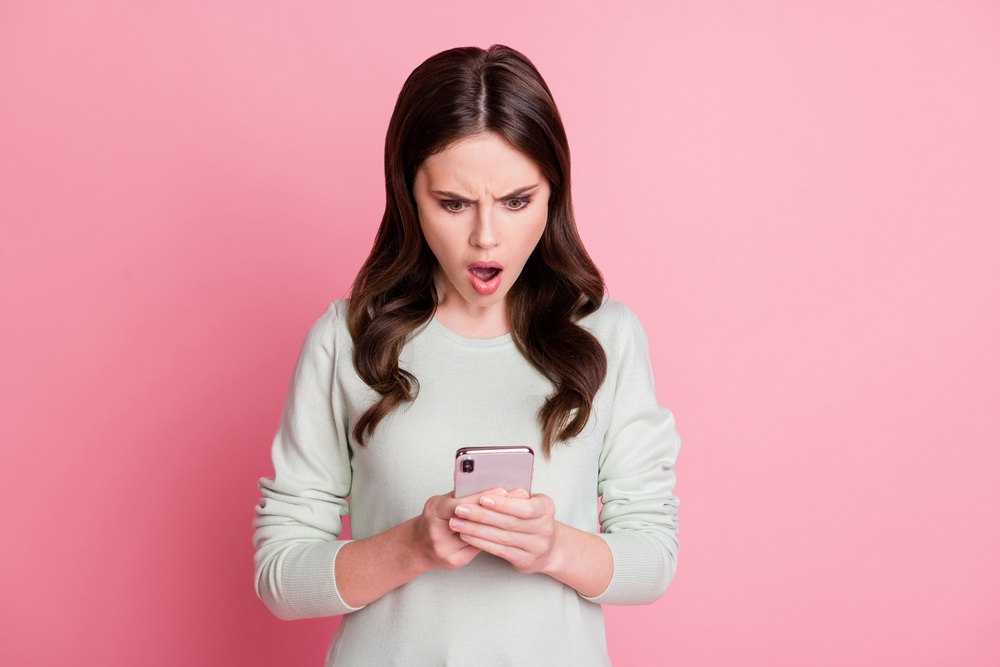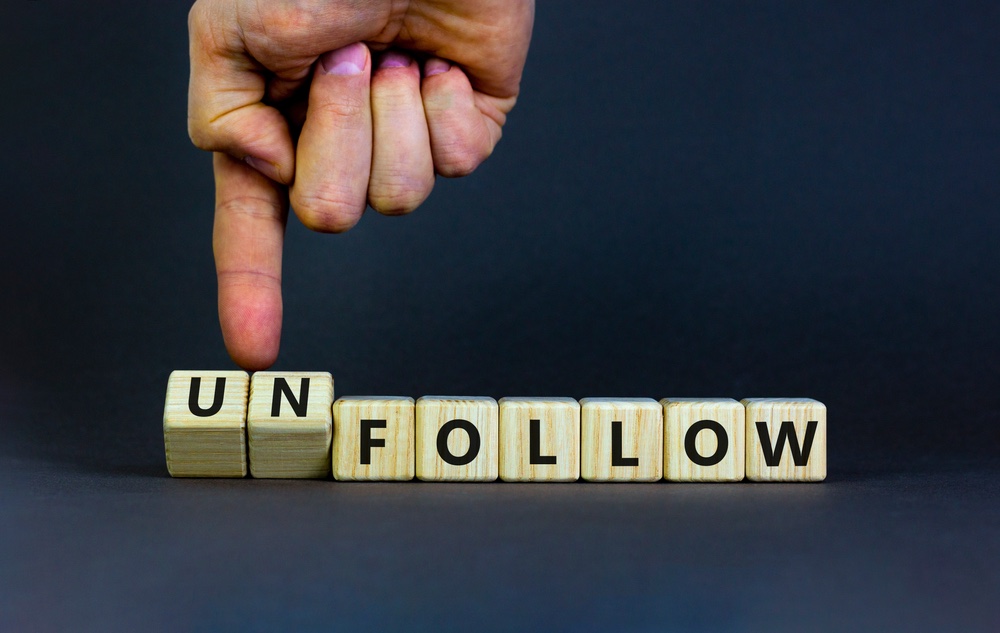It's not always about you: Here's why you shouldn't get offended by an unfollow
Does unfollowing have to be a big deal?
Kathryn Bernardo recently made the rounds on social media for unfollowing her ex-boyfriend, Daniel Padilla, almost two months after announcing the end of their 11-year relationship. Eagle-eyed social media users noticed she also unfollowed other actresses like Liza Soberano, Julia Barretto, and Gillian Vicencio, leading to another round of speculations. The public went to digging further into a more personal reason for their breakup and a probe into her real feelings—despite her clear statement of not wanting to entertain questions anymore, closing the chapter on KathNiel, and moving forward with her life.
Earlier this month, Instagram users noticed that Zendaya unfollowed everyone on the social media platform, including her boyfriend Tom Holland. People were quick to speculate they have called it quits, but the actor later stressed they have "absolutely not" broken up.
Something similar happened to KC Concepcion who, just last year, made headlines after confirming she unfollowed her step-dad Kiko Pangilinan and her half-sister Frankie. She expressed how much she loves them, but admitted that there are "complications" in their family and she wanted to have peace of mind amid all of it. "Hindi naman po masama na may time na mayroon kayong ina-unfollow or mayroon kayong ifofollow. Mahirap lang po talaga kapag showbiz 'yung family, talagang lahat pinupuna," she said in an interview.
There are numerous reasons why we unfollow someone on social media.
Sometimes, it's not as personal as we think it is. It could be a social media cleanse, their content not aligning with what we want to see on our screens, or simply growing apart from people or a specific time in our lives.
Of course, there is also a reason that hits too close to home, like attempting to move on and really not wanting to know anything about them anymore. We have all unfollowed someone at one point in our digital lives. Even occasional unfollowers could still feel offended when they've been unfollowed out of nowhere. I would be lying if I said I never once Googled, “Why did they unfollow me?” and let the search engine fill in the gaps of a confrontation that will likely never happen.
Strong reactions to a simple click of a button on our social media pages beg the question: Why do we care so much?

Social media now is a different beast than it was a decade ago. Unfollowing someone now seems a bigger deal than it actually is. It could simply just be that—an unfollow—but some of us tend to put ourselves through the agony of needing to know why.
According to mental health platform Headspace, Sarah Buglass, a psychology researcher at Nottingham Trent University, said that an unfollow "can be seen as a form of rejection."
"We are increasingly reliant on social media to keep us in the loop with our offline social connections—we use direct messaging rather than phone/text, we keep track of birthdays, organize events/outings, we share thoughts, feelings, and photos. To suddenly find you have been removed from this digital loop is for many tantamount to being socially excluded, she explained, adding that it could lead to negative emotions in connection to self-worth and belongingness.
For some of us, an unfollow is like an attack. It's even more intriguing when celebrities do it and prove that they are also humans going through a spectrum of emotions. The improved features and convenient communication lines come at the price of our personal information. People feel like they know us and vice versa—when someone hits the unfollow button, we equate it to being on bad terms.

Maybe it stings to be unfollowed or to be the one doing the unfollowing, but it is also setting a boundary for yourself and others—especially when it triggers you to see them on your feed. With a bit of introspection, we should realize that maybe we also have the same effect on other people; and that's just it. We should not have a say on how they handle their own accounts, and while confrontation could be done, is it really worth the stress?
Rica Peralejo-Bonifacio shared her sentiments on the matter in a post on Threads at the height of Kathryn's unfollowing issue. “To unfollow people on socmed is not immaturity. It is an issue of control. It is an act of agency. Especially when we unfollow abusers, gaslighters, or people we associate with the root of our oppression, it is then an empowering practice to say, even in a small way, that ‘You cannot do this to me anymore.'”
Usually, there is no victim and villain in the act of unfollowing, just a conscious decision that is not really owed an explanation. It's just social media, after all–it doesn't have to be that deep. Keeping close relationships with people who matter should transcend interactions online. Other people would opt for the “mute” option to keep the peace, but I also realized how freeing it is to cut certain ties to people or the media I don’t want to consume.
Everyone deserves control over their own accounts without people getting offended over an unfollow. Turn off the Wi-Fi, breathe, and remind yourself—it's not always about you.


